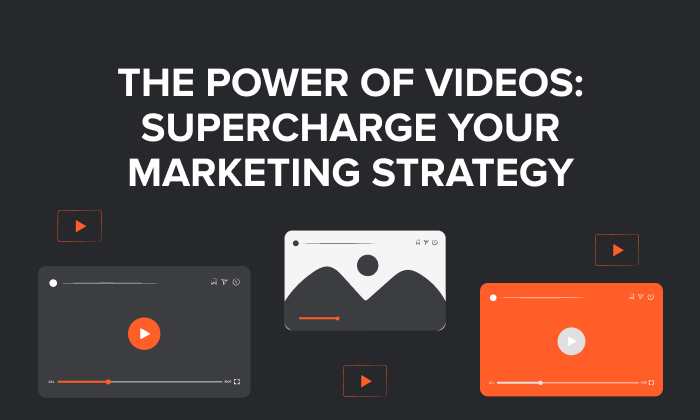
In today’s digital landscape, video content is no longer optional—it’s essential. With audiences consuming more video than ever, businesses must leverage this medium to enhance engagement, boost conversions, and improve their content marketing efforts. In this blog, we’ll explore how video can supercharge your content strategy, supported by real-world examples of websites successfully integrating video into their pages.
1. Why Video is a Game-Changer for Content Marketing
Increases Engagement
Video captures attention faster and holds it longer than text or static images. Studies show that users spend 88% more time on websites with video content than those without.
Boosts Conversions
According to HubSpot, including a video on a landing page can increase conversions by 80% or more. Whether it’s product demos, testimonials, or explainer videos, visual content helps guide potential customers through the buyer’s journey.
Improves SEO
Google favors video content in search rankings. Websites with embedded videos have a 53 times higher chance of ranking on the first page of Google compared to those without video.
Enhances Brand Trust and Credibility
Videos create a personal connection with viewers, making brands more relatable and trustworthy. Behind-the-scenes content, interviews, and customer testimonials add authenticity.
2. Types of Video Content to Incorporate
Product Demonstrations
Showing how a product works increases customer confidence and purchase intent.
Example:
- Apple (www.apple.com) includes high-quality product videos on every product page, allowing users to see features in action.
Explainer Videos
Great for simplifying complex topics and increasing retention.
Example:
- Dropbox (www.dropbox.com) uses animated explainer videos to help users understand its services quickly.
Customer Testimonials
Real customers sharing their experiences enhance credibility.
Example:
- Shopify (www.shopify.com) includes video testimonials from successful eCommerce entrepreneurs, showcasing real success stories.
Behind-the-Scenes Content
Humanizing your brand through office tours, employee interviews, and company culture videos builds trust.
Example:
- Tesla (www.tesla.com) shares behind-the-scenes videos of its manufacturing process and innovation labs.
Live Streams and Webinars
Real-time engagement opportunities help build a community.
Example:
- Facebook Live and YouTube Live enable brands to host Q&A sessions, interviews, and product launches, fostering direct interaction.
Educational & How-To Videos
Providing value through tutorials positions brands as thought leaders.
Example:
- HubSpot Academy (academy.hubspot.com) offers free educational videos on marketing, sales, and business growth.
Social Media Video Content
Short, engaging clips tailored for platforms like TikTok, Instagram Reels, and LinkedIn increase reach and engagement.
Example:
- Nike (www.nike.com) utilizes Instagram Reels and YouTube Shorts to showcase athlete stories and new product drops.
3. Best Practices for Adding Video to Your Website
Optimize for SEO
- Use descriptive, keyword-rich titles and meta descriptions.
- Add transcripts for accessibility and improved indexing.
- Implement video schema markup to enhance search visibility.
Ensure Fast Load Times
- Compress videos to prevent slow page speeds.
- Host videos on platforms like YouTube or Vimeo and embed them to save bandwidth.
Place Videos Strategically
- Above-the-fold on landing pages for maximum visibility.
- Near CTAs (Call-to-Actions) to drive conversions.
- In blog posts to enhance content depth and engagement.
Make Videos Mobile-Friendly
- Use responsive design to ensure videos play seamlessly on all devices.
- Add subtitles since many users watch videos without sound.
4. Measuring Video Performance
Use analytics to determine video effectiveness and optimize future content.
- Google Analytics – Tracks user behavior and engagement with video pages.
- YouTube Analytics – Provides insights on watch time, audience retention, and click-through rates.
- Heatmaps (e.g., Hotjar) – Show where users interact most on video pages.
Final Thoughts
Video is no longer just an enhancement; it’s a necessity in modern content strategy. Brands like Apple, Tesla, Shopify, and HubSpot prove that integrating video on websites boosts engagement, conversions, and SEO rankings. By leveraging video in creative ways—whether through explainer videos, testimonials, or live streams—you can elevate your content marketing efforts and stay ahead of the competition.
Is your website making the most of video? If not, now is the time to start!



